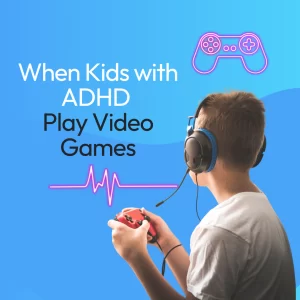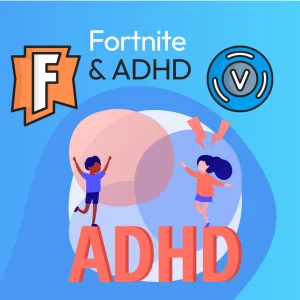I was at Costco last week and witnessed, first hand, the panic over toilet paper. While it was somewhat alarming, it was not particularly surprising to me. It was not until I was talking on the phone with my brother that I thought more about the impact that Coronavirus is having on young people. He and his 9-year old daughter, my niece, went to the grocery store last week. While he was trying to pack his cart with essential provisions, she kept asking more and more questions about “what was going on,” and “why everyone was so worried.” “In that moment,” my brother would later tell me, “all I could say was ‘stop asking questions right now, we can talk about your questions when we get home’.” Talking to our kids can be incredibly difficult. Particularly in the middle of a heated moment for ourselves.
Parents have a difficult job in front of them at the moment. Jobs may be laying off employees or, if you are lucky, requiring workers to take their jobs and work from home. Schools have let out, many have done so for the remainder of the year. Which further complicates the lives of parents who now have to juggle working from home with taking care of children throughout the day. Talking to your kids about grown up topics is tough. Younger kids may be asking questions like: “are you and dad going to get sick?”; “what about grandpa and grandma?”; “are we safe?” And older kids may be asking you about things they are hearing online, from their friends, and from the news. A recent article from CNN outlined several different strategies that may be helpful for parents who are not sure how to have this tough conversation:
-
Be reassuring, but be honest:
We may not have all the answers, as parents, but we do have the thing our kids need most: a deep meaningful relationship. In moments like this, where people are confused, fall back on the fact that your kids trust you, and your behavior often determines their level of concern. Assure your kids that they are going to be ok, and you are going to get through this together. Address your child’s fears, as those fears are real (in fact, none of us really know, yet, what the scope of this event may look like), but reassure them that people are working hard to help those who get sick and prevent as many healthy people as possible from getting sick as well.
-
Do not avoid the subject:
Young people, of every age, are keen observers. They hear and see things that adults often wish they hadn’t. Parents can act as a filter for kids of all ages. Young kids may be hearing a lot about the Coronavirus, and it may be a helpful first step to talk to them about the fact that “this is a fancy word for what we normally call a cold or the flu and something that has been around for a long time. Now there is a new virus, and that is what everyone is talking about.”
Kids are really going to benefit when we take the time to be transparent with our kids. They are, in all likelihood, already aware that there is something going on that is really really big. Take the time to explain it to them so they can stop wondering about the elephant in the room.
-
Less can be more:
While we are spending time with our children, it is important that we listen to them to understand their concerns. Often kids will respond well to a parent who is calmly and quietly giving them an opportunity to express themselves. Filling silences with talking might be something that we are used to doing in a number of different areas of our lives; however, giving our kids time to think with us there to support them is a great way for us to understand what their concerns might be, so that we can reassure them.
-
How to say, ‘I don’t know’:
It is important for us to say “I don’t know,” when presented with a question that we do not know the answer to. It seems as though this is antithetical to everything we understand about contemporary society, however. With our smartphones, if we have a question about the world often the answer is just a few key strokes away. When our kids ask us a question that we do not know, and we cannot simply look up (e.g., “are you going to get the virus?”), we can take that moment to say “I don’t know the answer to that.” We can also add reassurance to that as well by encouraging them that “it seems most people who get sick are getting better.”
Telling kids that you can “look things up together,” is another empowering way to model the fact that it is ok not to know everything. Reassure them that “we can find the answer together.” When these kinds of statements are made to children in a calm and inquisitive way, and not in a panic-stricken way, is generally not a worrying event for children.
-
Calm yourself down first:
Just like my brother at the grocery store, there are times where we need to ask our children to put their questions about the world on hold, momentarily. In those moments, where we realize that we might be really scared or anxious about the state of the world, it is important for us to calm ourselves down before attempting to navigate the crisis with our kids. Remember, that kids of different ages express anxiety differently. It may be a temper tantrum with our younger kids, rapid fire questioning from our pre-teen kids, and withdrawal from our older kids. Whatever the behavioral expression of anxiety, be sure that we are not misreading children’s misbehavior as oppositional and seeing it for what it is: deep concern about the world or their family. Talking to your kids will help minimize these feelings of anxiety.
-
Power them up:
When we feel helpless, we all attempt to find things that we can do to control our feelings of chaos: see the toilet paper isle at Costco. There are things that we can do to empower our kids as well. For those younger kids it may be washing your hands “to kill the germs,” or acting through play to “cast a spell on the virus,” or “pretending to be Elsa (from the movie Frozen) and freezing the virus.”
Empower older kids through talk too! For those seniors who are looking at no longer having a high school graduation, they are now part of a very adult community that must sacrifice their individual desires for the greater good of the community. For those seniors, this virus could come to define the values of a generation if their parents frame the crisis appropriately and contextualize the role of the child as a member of their community.
Lots of uncertainty is present in the coming days and weeks and, possibly, months and years. But one thing is for certain: whatever the crisis, parents can help their children adjust to a new way of life, and children can be resilient and strong in the face of adversity.
Catch some of our other posts:
COVID-19 closed schools? Student tips for time at home
Values: What are the things that matter, and how do we decide what to reach for?



